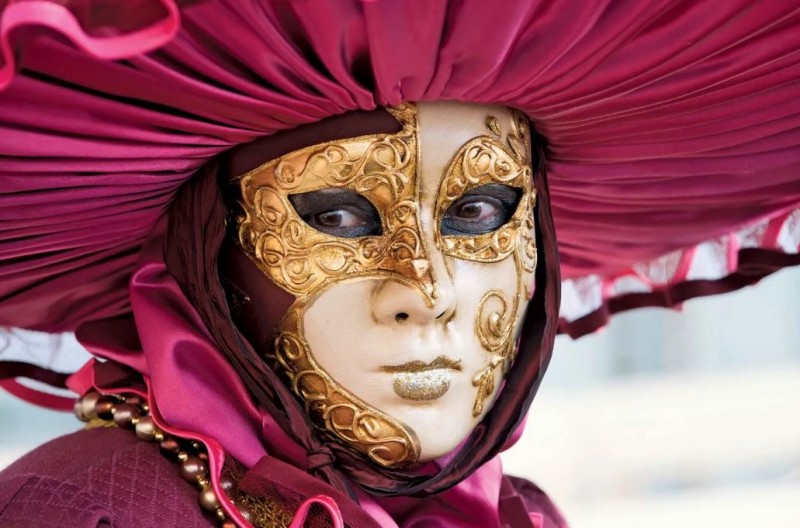
The art of theater has always been a captivating form of storytelling, allowing actors to portray various characters and transport the audience into different worlds. One of the most intriguing elements of theater is the use of masks. Traditional masks have a rich history and carry profound symbolism that adds depth and meaning to performances. In this article, we will delve into the fascinating history and symbolism of traditional masks in theater.
Introduction
Masks have been an integral part of theatrical performances for centuries. They have the power to transform actors into different characters, allowing them to transcend their own identities and embody the essence of the role they are playing. Traditional masks are not merely props; they hold a deep historical and cultural significance that connects actors and audiences to ancient traditions and storytelling techniques.
Origins of Traditional Masks
The origins of traditional masks can be traced back to ancient civilizations such as Greece, Egypt, and China. In ancient Greece, masks were used in religious ceremonies and theatrical performances, where they served as a medium for actors to express emotions and portray various characters. Similarly, in ancient Egypt, masks were used during rituals and ceremonies to honor deities and evoke supernatural powers. In China, masks were an essential part of traditional opera, representing different characters and their personalities.
The Function of Masks in Theater
Traditional masks serve multiple functions in theater. Firstly, they allow actors to physically transform into a character, enhancing their ability to convey emotions and gestures more effectively. Masks also provide a sense of anonymity, enabling actors to adopt a different persona and immerse themselves fully in the role. Furthermore, masks help the audience easily distinguish between different characters and their traits, making the storytelling more engaging and understandable.
Types of Traditional Masks
There is a wide variety of traditional masks used in theater, each with its unique characteristics and purposes. Some notable examples include:
Comedy Masks: These masks, often known as "theater of laughter," are associated with comedic performances and represent exaggerated expressions of joy, laughter, and amusement.
Tragedy Masks: These masks symbolize the darker aspects of human emotions, such as sorrow, grief, and despair. They are commonly used in tragic plays and emphasize the somber themes of the performance.
Character Masks: These masks are designed to represent specific characters in a play, each with distinct facial features and expressions that reflect the character's personality, age, and social status.
Symbolism and Meanings
Traditional masks are imbued with symbolism and carry specific meanings. The designs, colors, and patterns on the masks often represent various emotions, virtues, or mythical beings. For example, a red mask might symbolize anger or passion, while a white mask may represent innocence or purity. The symbolism behind each mask adds depth to the character and contributes to the overall narrative of the performance.
Cultural Significance of Masks
Traditional masks hold immense cultural significance in different societies. They are a testament to a community's history, traditions, and beliefs. Masks are often associated with rituals, ceremonies, and festivals, where they play a central role in celebrating cultural heritage. These masks help preserve cultural identities and serve as a visual link between the past and the present.
Evolution of Masks in Modern Theater
As theater evolved over time, traditional masks underwent adaptations to suit the changing dynamics of performances. Modern theater often combines traditional mask techniques with contemporary elements, resulting in innovative and visually captivating productions. While some theater forms continue to rely heavily on traditional masks, others have incorporated new technologies and materials to create masks that are both aesthetically striking and functionally versatile.
Impact of Masks on Performances
The use of traditional masks in theater has a profound impact on performances. Masks have the ability to transcend language barriers, enabling international audiences to appreciate and connect with the story being told. They add an element of mystery and intrigue, capturing the imagination of the viewers and heightening their emotional involvement. The transformative power of masks allows actors to create vivid and unforgettable characters, leaving a lasting impression on the audience.
Psychological Aspect of Masked Performances
Psychologically, the act of wearing a mask can have a profound effect on both the actor and the viewer. Masks provide a sense of detachment from one's own identity, allowing actors to explore and express different facets of their personalities. For the audience, masks create a sense of distance and objectivity, making it easier to empathize with the characters and their experiences.
Preservation of Traditional Masks
The preservation of traditional masks is crucial for safeguarding cultural heritage and ensuring their continued relevance in theater. Efforts are being made by artists, scholars, and cultural organizations to document, study, and revive traditional mask-making techniques. By preserving these ancient art forms, future generations can appreciate and learn from the rich cultural history represented by traditional masks.
Conclusion
Traditional masks in theater are more than just decorative props; they are vessels of history, symbolism, and cultural identity. The use of masks enhances performances by enabling actors to transcend themselves and connect with audiences on a deeper level. From ancient civilizations to modern productions, masks have played an integral role in the art of theater, captivating audiences and breathing life into unforgettable characters.
Adani Enterprises acquires 30% stake in Trainman, online train ticket booking platform.
Remembering Bollywood Superstar Sanjeev Kumar on His 83rd Birth Anniversary
Exploring the World of Augmented Reality: Blending the Physical and Digital Realms